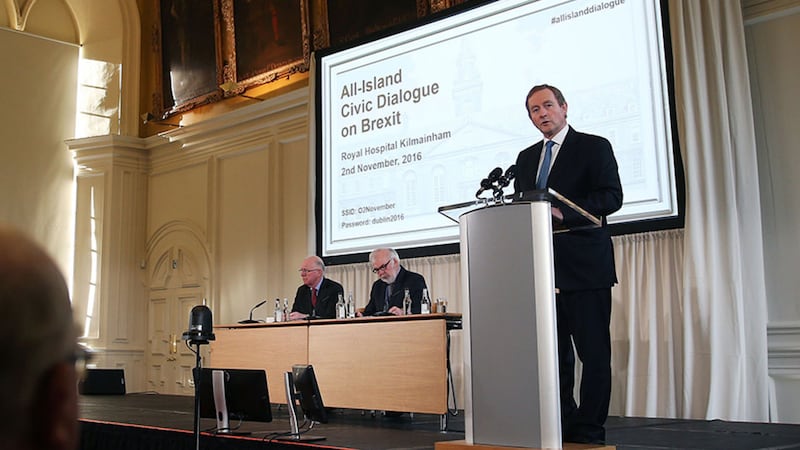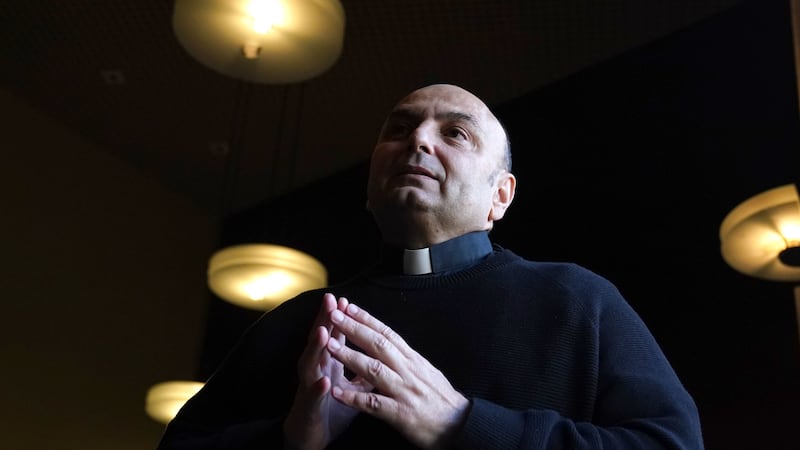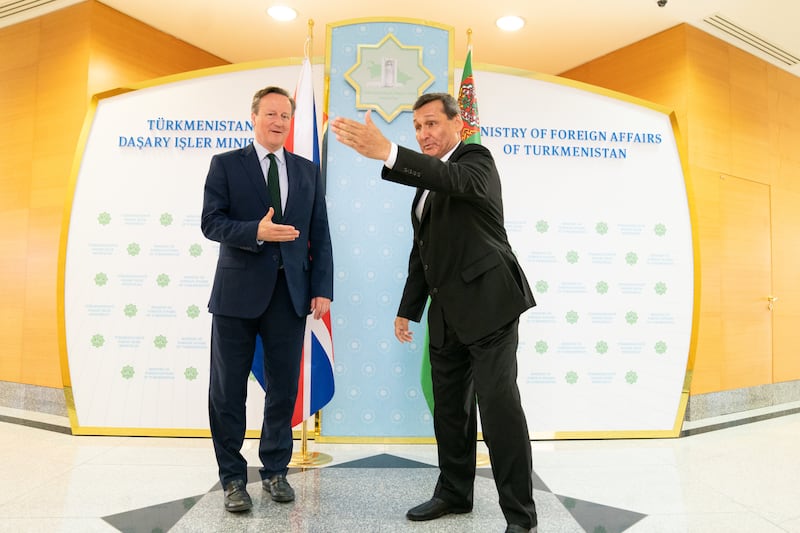Theresa May could trigger Brexit within weeks as she faces "quite vicious" leaders around the European table, Taoiseach Enda Kenny has warned.
He also cautioned Europe against "losing the plot" over the UK's decision to leave the EU.
In unscripted remarks before a conference in Dublin on the impact of Brexit on Ireland, Mr Kenny said the Brtish prime minister had indicated she will trigger Article 50 - the mechanism for leaving - before the end of March.
"That doesn't mean it mightn't be triggered in December... or January, or February," he added.
Mr Kenny suggested some European leaders would become very hostile to Britain.
"The other side of this argument may well get quite vicious after a while, because there are those around the European table who take a very poor view of the fact that Britain decided to leave," he said.
"That argument, I think, will be fought very toughly, in a really difficult negotiating sense."
The issue of access to the single market being wedded to freedom of movement would be critical, he suggested.
Europe also has to decide for itself where it wants to be in the years ahead, he added.
"If it becomes obsessed with what the UK might or might not get, then Europe itself loses the plot," he told the the All-Island Civic Dialogue, a specially convened forum of politicians, business leaders, community representatives and others from both sides of the border.
The DUP and UUP both snubbed the talks.
Earlier, Mr Kenny told the gathering people will be able to travel freely between the UK and Ireland after Brexit.
The Taoiseach said he has agreed with Mrs May that the "benefits of the Common Travel Area" between both countries should be preserved.
The deal, which dates back to the 1920s, secures freedom to travel between Britain and Ireland.
"I have agreed with the Prime Minister that there will be no return to the borders of the past," he said. "Therefore, the retention of an open border is critical.
"Neither I, nor the prime minister, desire to limit the freedom of people on both sides of the Irish Sea to trade, to live, to work, to travel freely across these islands.
"Therefore, we have agreed that the benefits of the Common Travel Area be preserved."
He said Northern Ireland and the peace process would be central to Dublin's priorities in the negotiations between Britain and the remaining 27 EU leaders over the terms of Brexit.
"I also acknowledge that the electorate in Northern Ireland did not vote to leave the European Union," he said.
Mr Kenny added that the Irish government remained fully committed to the Good Friday Agreement, pointing out it was a co-guarantor along with the British government of the 1998 peace deal.
He said Britain's decision to leave the EU was the most significant economic and social challenge to hit Ireland over the last half a century.
Micheal Martin, leader of Fianna Fail, attacked British government ministers for pushing a "crude and chaotic" Brexit agenda.
Urging Ireland to attempt to soften Britain's exit from the EU, he said June's "divisive and damaging" referendum result had profound short, medium and long-term implications for Ireland.
"Our agenda is the clear one of wanting to minimise the damage and division of Brexit and to maximise progress for all parts of this island," he told the forum.
"Let's explore radical ways of softening Brexit, but we also have to talk about the crude and chaotic Brexit which some in the London cabinet appear to be advocating.
"Unlike the Foreign Secretary (Boris Johnston), we don't have the luxury of being pro-having the cake and eating it."
Mr Martin said Brexit negotiations must lead to a specific package which recognises the unique economic and social impact on Ireland.
"And, of course, we have to respect the will of the majority in Northern Ireland and equally the majority in this jurisdiction which voted overwhelmingly for a political settlement which sets a shared European context for overcoming the legacy of sectarianism and violence on this island," he added.
Sinn Fein leader Gerry Adams said his party wanted a referendum on Irish unity.
But he also suggested a "designated special status" for Northern Ireland, citing other unique EU arrangements like Denmark/Greenland.
"That threatens no-one's constitutional preference and this state, as a continuing member of the EU, has the right, and in our view the obligation, to bring forward such a proposal," he said.
"The EU has proved itself capable of accommodating unique circumstances."








